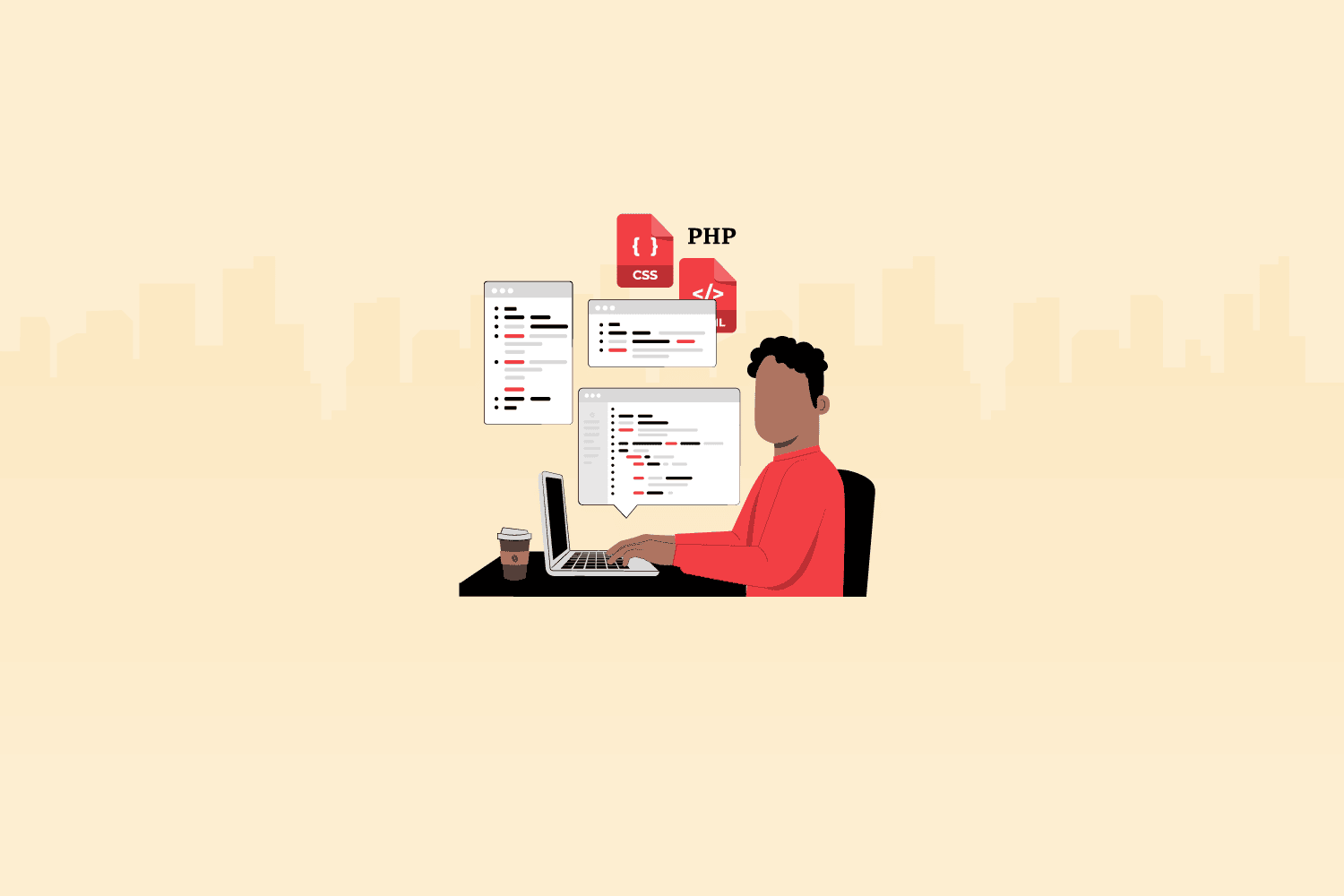Data is the new gold & enterprises have to invest in data management solutions to increase their organization’s intelligence, speed, and productivity. Unfortunately, IT teams find it is not easy to gather all this information and manage the database requirements independently. It is where companies hire a database administrator.
Whether it’s information ingested from sources outside of your organization or client transactional data, database administrators assist in protecting the data your business is collecting. A DBA ensures that data is organized meaningfully to the appropriate individuals & adds value to the businesses.
The employment of database administrators and architects is expected to expand by 9% between 2021 and 2031, faster than the average for all occupations. Due to their rarity and high demand, database administrators, or DBAs qualified ones, can be challenging to identify, technically verify, and ultimately hire.
So, how can you be sure your company hires the most competent data administrator? That’s what we insist you through this guide and how pre-assessment of a database administrator can be instrumental in helping you find the right one!
Who is a database administrator?
Designers, developers, and implementers of database systems are known as database administrators (DBA). Moreover, they must guarantee the high performance, security, and availability of the data kept in the database.
The principles of relational databases and how to create them should be well-understood by database administrators. Additionally, they must be proficient in database upkeep, backup management, and disaster recovery.
Applying security measures, encryption, access management, and logging are all skills that a company looks for when they hire a database administrator to keep their data confidential. A DBA should be conversant with relational and non-relational databases to stay abreast of new technological trends that are reshaping data management and storage.
Database administrator and data administrator- what’s the difference?
For a user to analyze business operations, a database administrator (DBA) manages, maintains, and secures data in one or more data systems. DBAs handle technical aspects of data storage, organization, presentation, use, and analysis.
But how are they any different from data administrators? A data administrator is in charge of transforming data into a reliable data model & the person who selects the information that should be entered into the database as relevant. Data Administrator is more of a business role with some technological competence and less of a technical role, unlike database administrator.
A database administrator must be acquainted with various programming languages because everyone has a unique distributed database system. In contrast to Java, which is often used for NoSQL databases, Python scripts are frequently used for data manipulation.
Why there is a need to hire a database administrator?
A database administrator plays a crucial role in the organization, just like any other IT position. They carry a substantial obligation that cannot be replaced by any other position within the organization.
Although hiring a DBA could be expensive, the advantages outweigh the expenses. Every organization that takes data and database administration seriously should hire a database administrator. Here’s why:
● They bring best practices for your database: In database management systems, database administrators are pros. Database administrators will work tirelessly to ensure that your company adheres to best practices because they are conscious of their relevance.
● They provide better performance monitoring: One of the main tasks of database administrators is to check databases for performance concerns. An expert database administrator will be well-versed in all the crucial DBA tools needed to address various performance issues and keep a healthy database.
● They provide enhanced security: A skilled DBA will be conscious of any potential flaws in your database software and work to apply the best procedures to reduce risks. Furthermore, the DBA can look through audit logs to identify the culprit in the event of data leaks.
● They help in disaster prevention: A skilled DBA will roll out creative strategies to stop system failures and potential recovery options. They are knowledgeable about all potential disaster scenarios and procedures that could expose your database to security risks.
But how will you know it’s time to hire a database administrator? Evaluating metrics is the first step in determining whether or not to hire a DBA. You will eventually become aware of performance issues, but you might not know how to address them while maintaining client satisfaction.
Eventually, your will become slow in eliminating such errors, hence the need to hire a DBA. Knowing when you need a DBA is crucial since they have a much deeper understanding of your database than you can fathom.
What skills should you look for when hiring a database administrator?
The job of database administrators is demanding. They must have strong, specific database abilities & a thorough understanding of applications, corporate demands, and user requirements.
Because of this, choosing the best candidate often depends on a pre-hire assessment of a database administrator & a company can assess a database administrator based on the required skills. Let’s look at what they are.
Accountability & conscientiousness
Any seasoned DBA would have committed at least a few errors in the field. The most important trait of a competent DBA is taking responsibility for the incident, telling the relevant individuals who should care about it, and working toward a resolution.
Communication
While communication is a fundamental skill for many professionals, its important for DBAs. To comprehend the business and technology objectives and to convey restrictions, problems, ramifications, and potential alternatives, DBAs must have both listening and expressive skills.
Agility
Working with databases in production settings is a stressful task. The rapid speed of change makes it necessary for the DBAs to take swift action and work in constantly changing situations. Additionally, agility helps DBAs handle the high-stress circumstances that are certain to arise at some point.
Analytical skills
A DB administrator wouldn’t be able to create a schema to accomplish any useful task without advanced analytical abilities. A DB administrator with analytical abilities can be equipped to solve the many issues that frequently arise with databases.
Problem-solving skills
Similar to logical reasoning and analytical abilities, you should seek out database administrators with a remarkable capacity for problem-solving. Databases and the query languages used to access them can become exceedingly complex.
Look for database administrators that can deconstruct a complicated procedure into its parts and troubleshoot each without becoming bogged down in the details.
High proficiency with databases
Your DB administrators should know at least one database management system (such as MySQL or MS SQL Server). A DB administrator should ideally have a strong foundation in relational and non-relational databases to be highly effective.
How to hire the right database administrator?
Data-driven firms are 23 times more likely to attract consumers, six times more likely to keep those customers, and 19 times more likely to achieve profitability, as per McKinsey Global Institute. Hence hiring a skilled database administrator is critical today.
However, employing a database administrator need not be difficult. Finding a highly qualified team member shouldn’t be an issue if you search for someone with the above skills. But how can you choose the right candidate? By founding a solid hiring funnel.
1. Build the ideal candidate profile
You must comprehend what the position entails to choose the ideal candidate. To define the role, its contribution, and the required skills, you can collaborate with the recruiting manager. Ensure to thoroughly describe the technical details of your organization’s database & the software it utilizes.
Moreover, it will help if you let candidates know what kind of data they will be handling and from which nations, as this will affect how well a database administrator can do their work.
2. Defining roles with a precise job description
You must first comprehend the prerequisites for the position before you can accomplish them. Then, you can create a compelling job description to promote the job. Writing detailed and accurate job descriptions is crucial for the sometimes overlooked purpose of attracting candidates.
The more information you give candidates upfront, the more likely they will be equipped with the knowledge they need to assess whether or not the position is a good fit for them and whether or not to apply.
If you’re having difficulties coming up with one, you can start with a template for a job description already in existence and modify it to fit the team’s business needs.
3. Interviewing the right way
You can concentrate on interviewing those applicants once your assessment of a database administrator has identified those who are best qualified for your available position. Any talents that were identified from the skills assessment as needing improvement should be the main topic of the interview.
Now that you are aware of a candidate’s suitability for the position, the interview serves more as a chance for relationship-building so you can learn more about them personally, their motivations & potential fit with the team.
4. Making an offer
The next step is to make an offer to your candidate of choice. Database administrators typically earn a base salary of $73,372, with 90% of incomes over $110,000, according to Payscale.com. While the average reported salary on Indeed.com is $94,919 and $80,770 on Glassdoor.com, respectively.
Therefore, it’s obvious that you make an offer that satisfies the candidate. Quick action is essential when expressing the decision if prospects conduct several interviews. Candidates admire and consider employers who have a flexible hiring process in their decision-making.
Take your hiring to the next level with Testlify
Every corporation relies on its database administrators to function. But where do you look for them? And how can you tell whether they fit properly?
Finding the ideal DBA is difficult due to the significance of the position, the numerous rounds of interviews conducted to assess a database administrator, the diverse and specialized technical abilities necessary & the essential soft skills. There is no room for error because the company only employs a few database administrators.
That’s where Testlify comes in. By making sure you only hire the top prospects out of all the applicants with the customizable assessment of a database administrator, Testlify helps you decrease downtime and boost productivity.
Hiring can be a tiring process. However, if you can learn to recognize the necessary skills, even though they can occasionally be hidden behind a dull resume or a challenging interview, it will be well worth your time to hire a database administrator that will complement your company! Ready to revolutionize your hiring process? Sign up with Testlify today!








